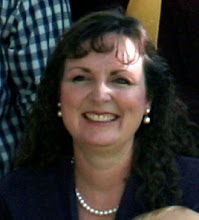As genealogists we regularly work in original records. The old handwriting can be a bit difficult to read at times. Especially if we are not familiar with the abbreviations, numbers or legal terms found in the documents. I have found that the best help for reading old documents is practice, practice and more practice. I have found a couple of free resources that may also help.
FamilySearch has created a lesson series called, Reading Handwritten Records. The series is geared toward the beginner. These lessons are found for the following languages: Dutch, English, French, German, Italian, Latin, Polish, Portuguese, Russian, Scandinavian and Spanish. Lessons are located at:
FamilySearch.orgThe Center for Family History & Genealogy at Brigham Young University has created Script Tutorials - Resources for Old Handwriting and Documents. Tutorials for English, German, Dutch, Italian, French, Spanish and Portuguese are found at:
http://script.byu.edu/The National Archive in England has also developed an online tutorial for reading English records written between 1500-1800. Found at:
http://www.nationalarchives.gov.uk/palaeography/Another resource is found at
Wiki.FamilySearch.org search for the word handwriting and many helps will be listed not only for American handwriting but English, German, Scottish, Latin, Dutch, Italian, Norwegian, Czech, Swedish, Russian, and Danish handwriting. Don't forget to print off the genealogical word lists also available at this site.
One last resource for improving paleography skills. Practice! One of the best places to practice your skills is at: indexing.
FamilySearch.org IndexingIndexing projects are currently posted in the following languages: English, Spanish, Italian, Russian, Swedish, Czech, French, Norwegian and German.
Now you have the tools to improve your paleography skills.





